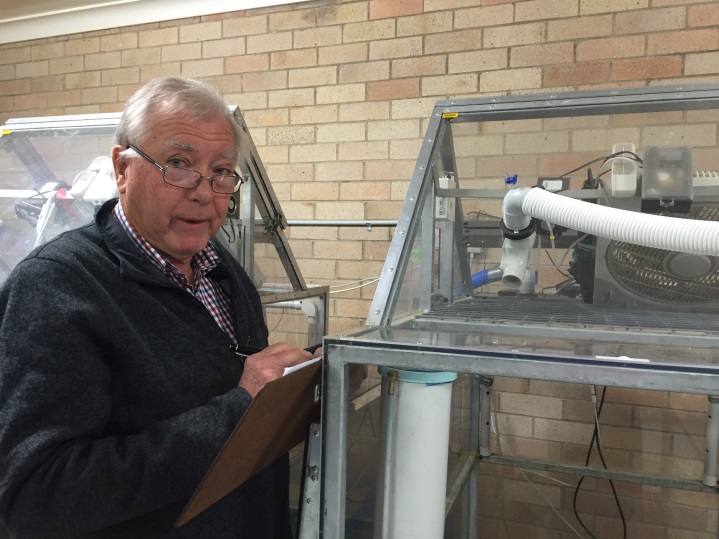 Large-scale methane measurements on individual ruminants for genetic evaluations
Large-scale methane measurements on individual ruminants for genetic evaluations
Hutton Oddy

Tell us about yourself (Who are you? Where are you from? What is your educational background?)
Hutton Oddy, from Armidale, Australia. Once upon a very long time ago I obtained a PhD in Animal Biochemistry from Cambridge.
What is your area of expertise?
My initial training was in Chemistry and Biochemistry, but have since covered fields such as animal physiology, nutrition, feed evaluation, genetics, genomics, animal production systems and modelling. For my sins I have also served some time in research management.
Where does your focus lie within your current project(s)? (related to methane)
Understanding why animals differ in methane emissions and the extent to which genetics of the host animal is involved.
What would be the added value for you of joining an international researchers network?
Connections with people make work more fulfilling and help me learn faster.
What and/or who inspired you to make a career in science?
I always wanted to be an Aeronautical Engineer, but jobs were hard to come by so I thought I would try science. Science feeds my curiosity and allows me to think and act together (and its fun). Frank Annison and Derek Lindsay helped feed my curiosity.
What do you enjoy most about your work?
The uncertainty, and the “ah-ha” moments. The opportunity to influence ideas.
What is your most stand-out or surprising moment in science so far?
The paradox that many mechanisms affecting traits are conserved across species (and different populations within species), but that they “seem to be” controlled by “many genes of small effect”. For example, selection for wool growth affects nutrient supply to the host through changes in flow through the rumen (in at least 3 independent populations). For a nutritionist, to have an animal control its nutrient supply over and above the feed eaten is a (frightening) revelation. A quantitative geneticist seeing the same pattern in 3 totally independent populations should reconsider the value of randomness.


